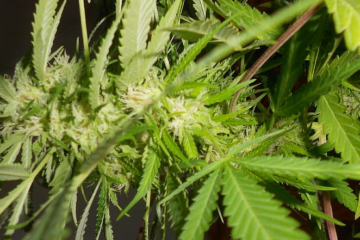Recent studies have highlighted the potential risks associated with prenatal cannabis use, revealing several adverse maternal health outcomes. As cannabis becomes more widely accepted and legalized, understanding its impact on maternal health is crucial. This article delves into the findings of a recent JAMA study, exploring the implications of cannabis use during pregnancy and its effects on maternal health.
Health Risks Associated with Prenatal Cannabis Use
Prenatal cannabis use has been linked to various health complications for expecting mothers. One significant concern is the increased risk of gestational hypertension and preeclampsia. These conditions can lead to severe health issues for both the mother and the baby, including preterm birth and low birth weight.
Another adverse outcome associated with prenatal cannabis use is gestational diabetes. This condition can complicate pregnancy and increase the risk of developing type 2 diabetes later in life. Managing gestational diabetes requires careful monitoring and lifestyle adjustments, which can be challenging for pregnant women.

Additionally, cannabis use during pregnancy has been linked to abnormal weight gain patterns. Both excessive and insufficient weight gain can pose risks to maternal and fetal health. These findings underscore the importance of educating pregnant women about the potential risks of cannabis use and promoting healthier alternatives for managing pregnancy-related symptoms.
Impact on Maternal Mental Health
The effects of prenatal cannabis use extend beyond physical health, impacting maternal mental health as well. Studies have shown that cannabis use during pregnancy can exacerbate symptoms of anxiety and depression. These mental health issues can affect a mother’s ability to care for herself and her baby, leading to long-term consequences.
Moreover, the stigma associated with cannabis use during pregnancy can contribute to feelings of guilt and shame. This stigma can prevent women from seeking help and support, further exacerbating mental health issues. Healthcare providers must create a supportive environment where pregnant women feel comfortable discussing their cannabis use and receiving appropriate guidance.
Research also suggests that prenatal cannabis use may be linked to an increased risk of postpartum depression. This condition can significantly impact a mother’s well-being and her ability to bond with her baby. Early intervention and support are crucial in mitigating the effects of postpartum depression and promoting maternal mental health.
Recommendations for Healthcare Providers
Given the potential risks associated with prenatal cannabis use, healthcare providers play a critical role in educating and supporting pregnant women. It is essential for providers to discuss the potential risks of cannabis use with their patients and offer evidence-based guidance on safer alternatives for managing pregnancy-related symptoms.
Screening for cannabis use should be a routine part of prenatal care. Early identification of cannabis use allows healthcare providers to offer appropriate interventions and support. This proactive approach can help mitigate the risks associated with prenatal cannabis use and promote healthier pregnancy outcomes.
Healthcare providers should also advocate for more research on the effects of prenatal cannabis use. While current studies provide valuable insights, further research is needed to fully understand the long-term implications of cannabis use during pregnancy. This knowledge will enable providers to offer more comprehensive and accurate guidance to their patients.



